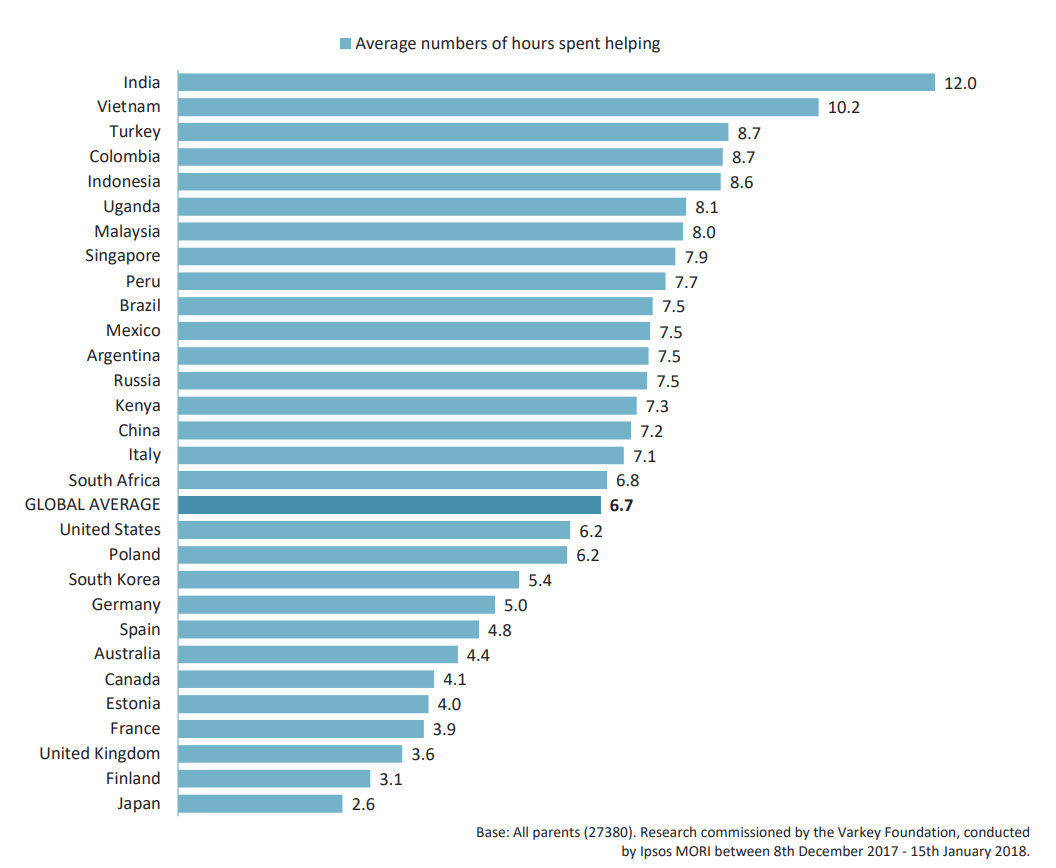Even though parents in Singapore are long done with school work, they are still confronting homework.
This is so as parents in Singapore spend an average of 7.9 hours a week helping their children with homework.
This is according to the Global Parents Survey 2018, done by the Varkey Foundation, a charity that aims to improve the education of underprivileged children around the world.
Helping children with schoolwork
After querying 27,500 parents in 29 countries, the survey found that parents from India spend the most time helping their kids with homework.
At an average of 12 hours per week, this ranks them way ahead of Vietnam respondents, who came in second with an average of 10.2 hours.
Singaporean parents come in eighth at 7.9 hours per week, which is still way above the global average of 6.7 hours.

Some 29 percent of Singaporean parents reported spending seven hours or more a week dedicated to this task.
However, there was 27 percent who did not help their children at all.

Globally, better-educated parents were also the most likely to offer help -- 39 percent of those who had only been educated to primary level gave no help at all.
Singapore an exception?
The study found that parents in emerging economies spend more time helping children with schoolwork than those in richer nations.
Most of the developed nations are recorded to be below the global average: Finland has an average of 3.1 hours, while Australia has an average of 4.4 hours.
At 7.9 hours, Singapore is an exception for developed nations.
And yet, 42 percent of Singaporean parents surveyed felt that they spend too little time helping with their child's education.
[related_story]
Confidence in school
Even for Singapore parents who spend a higher-than-global average number of hours on their children's homework, confidence levels for quality of teaching are high.
Some 80 percent of Singapore parents rated the school quality as "fairly good" or "very good".
However, there is little relationship between how good educational outcomes are nationally (measured by the PISA international educational rankings) and parental confidence in teaching quality.
For example, 60 percent of those in Japan and 43 percent of parents in South Korea had low levels of confidence in the quality of education, although these countries excelled in the PISA rankings.
Top photo via Home Tuitions SG
If you like what you read, follow us on Facebook, Instagram, Twitter and Telegram to get the latest updates.
